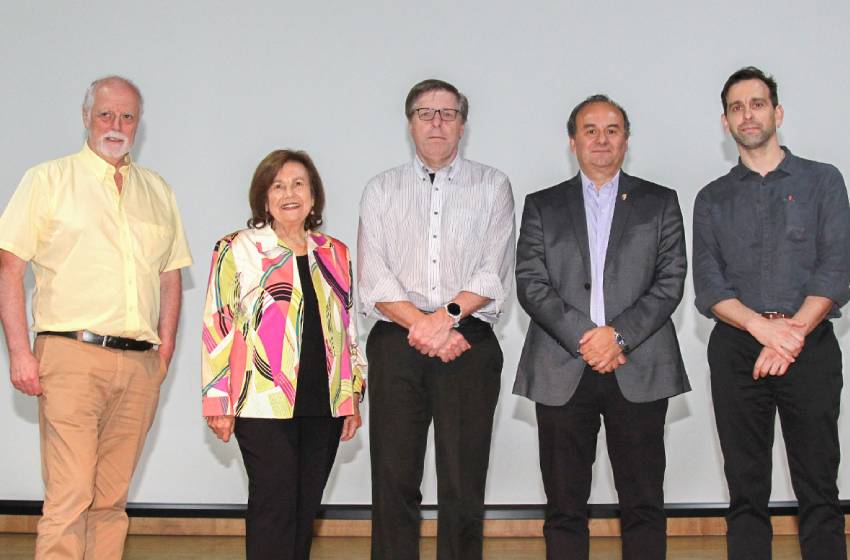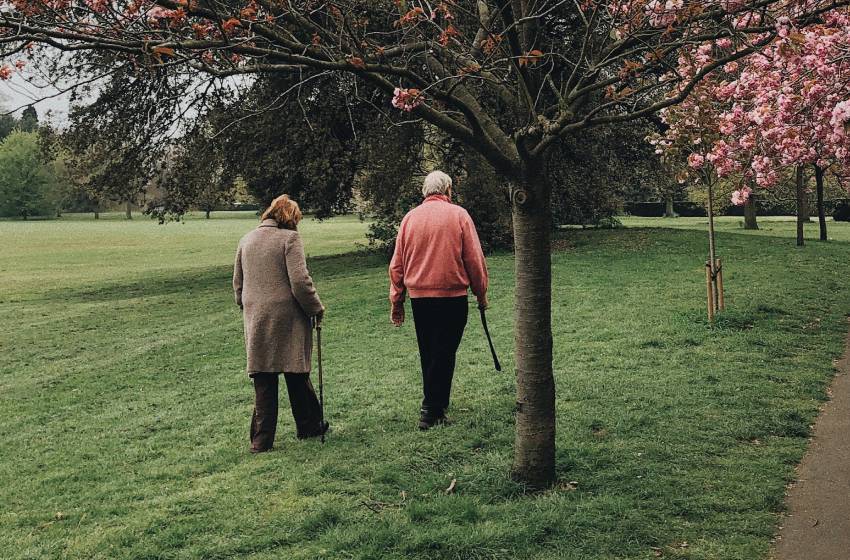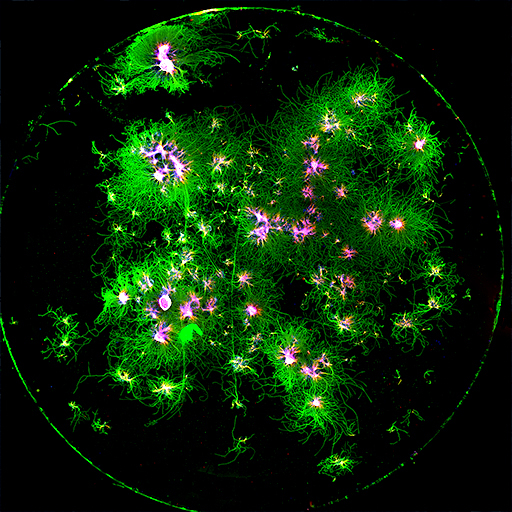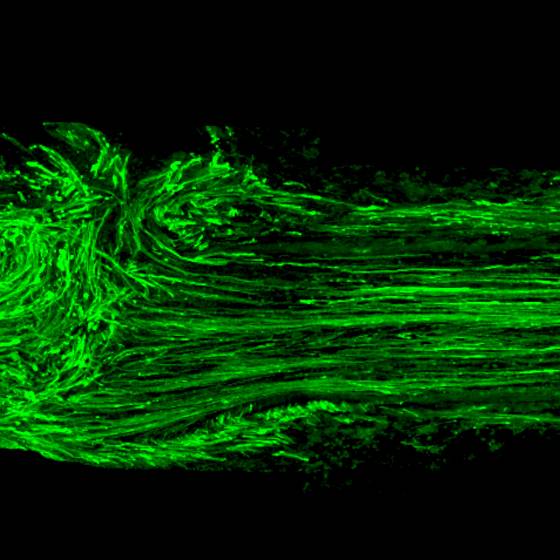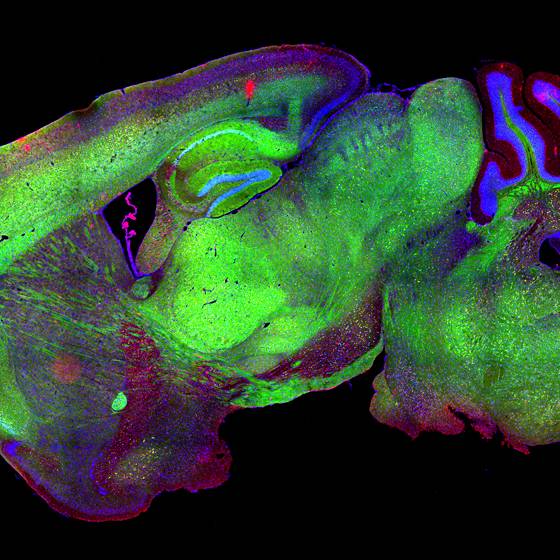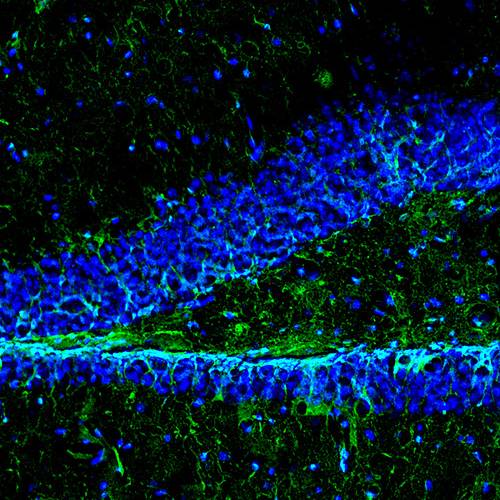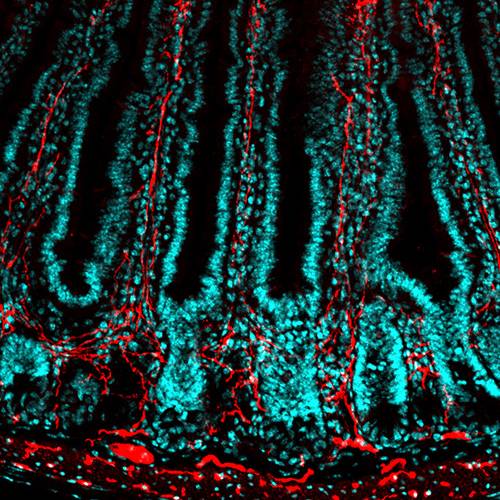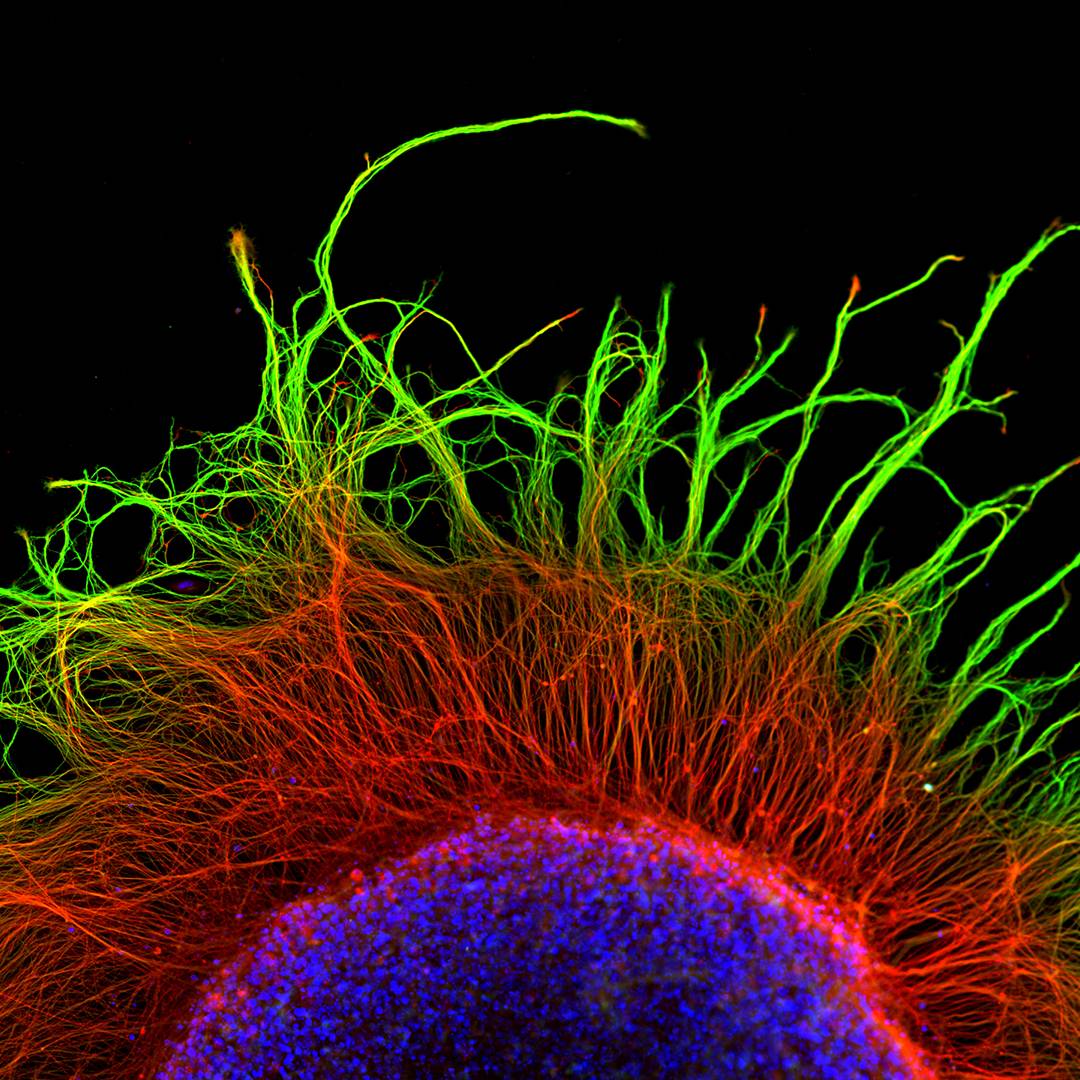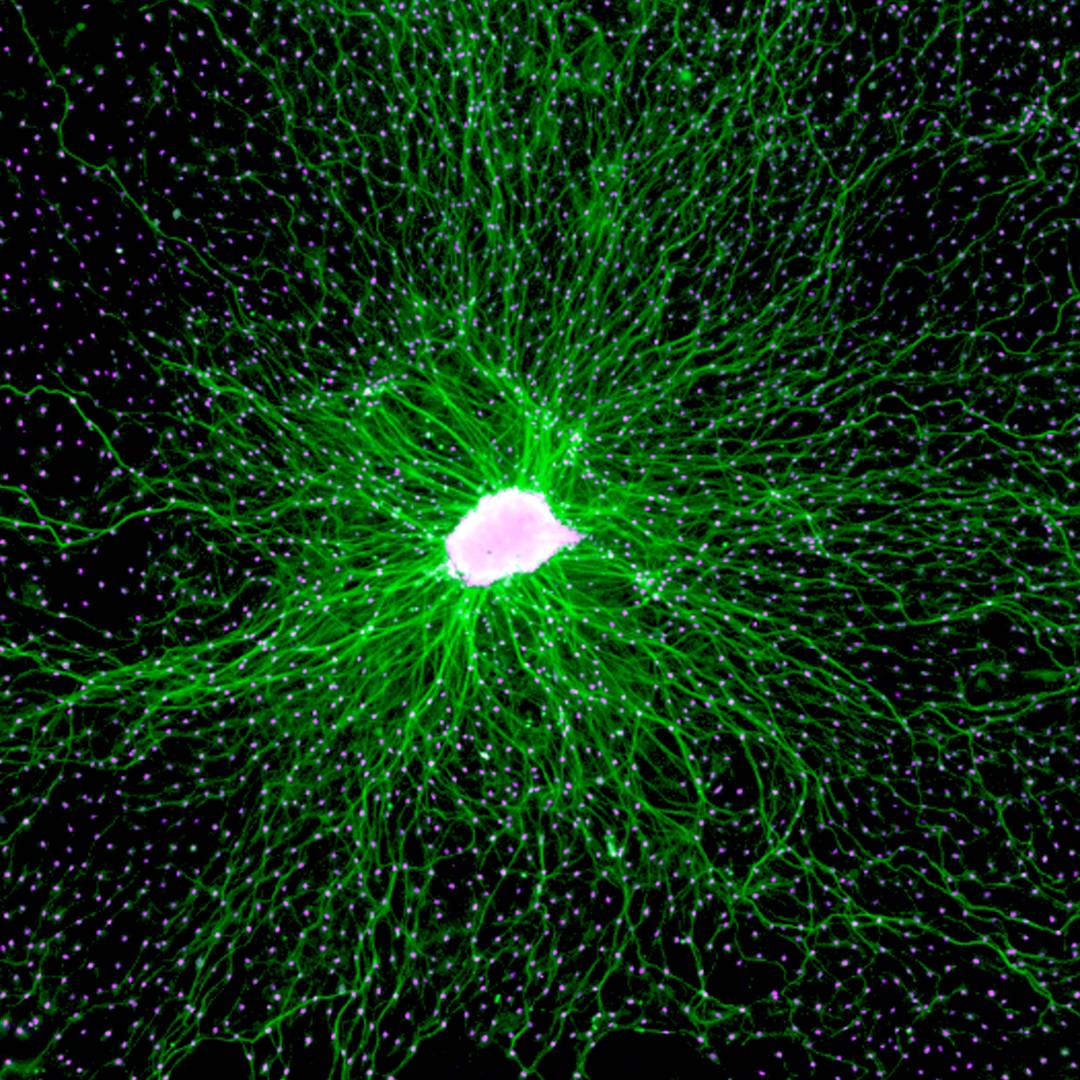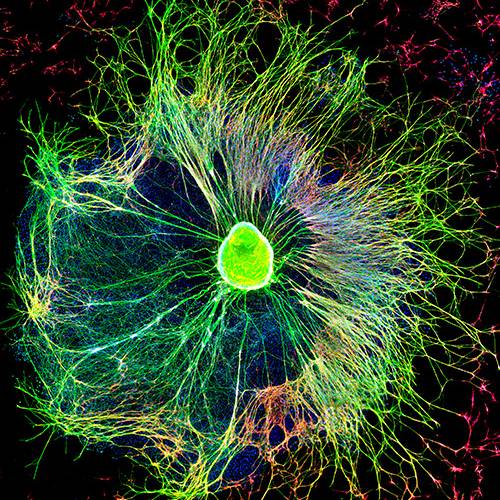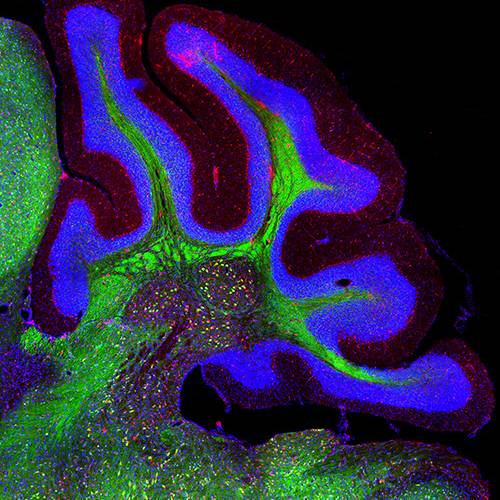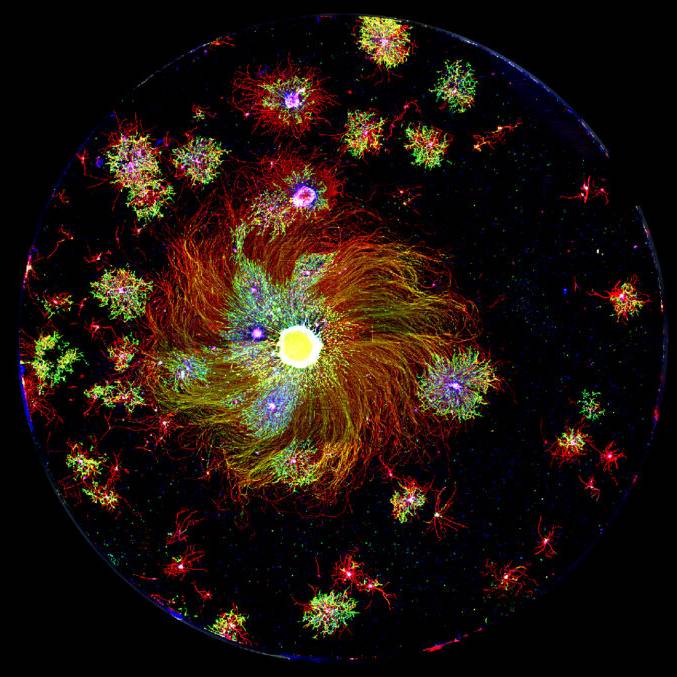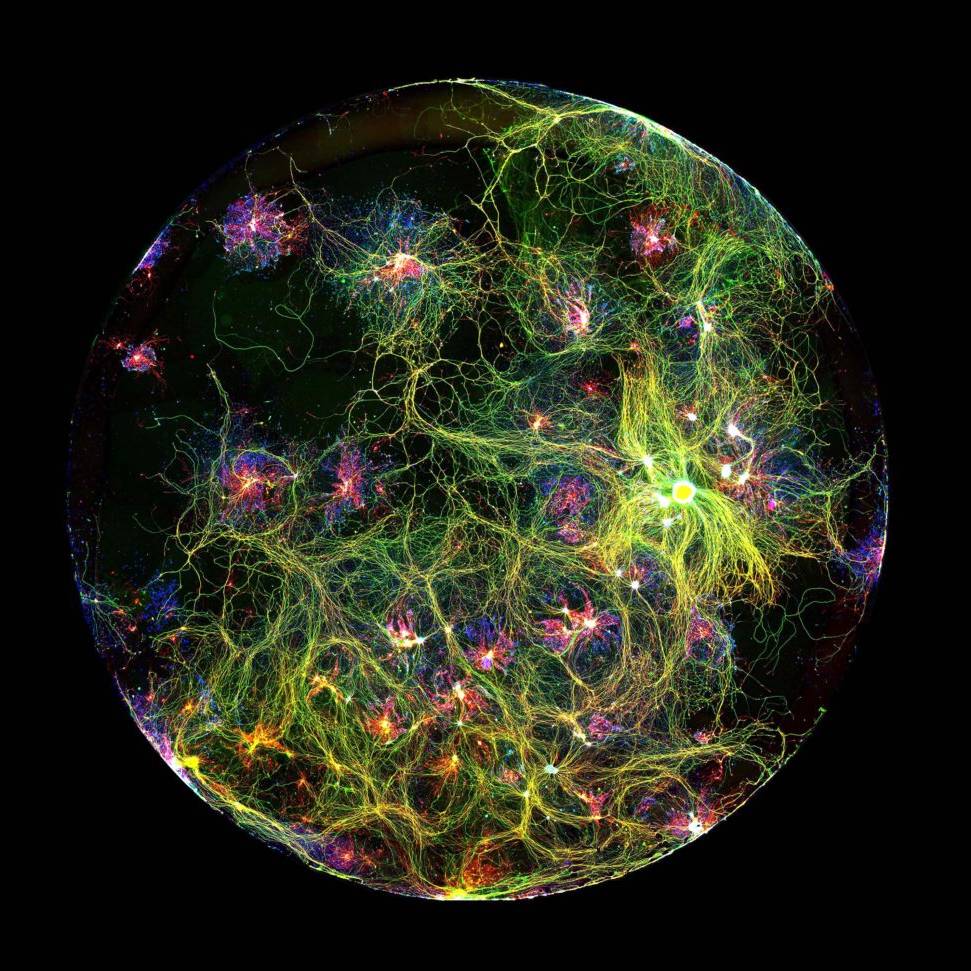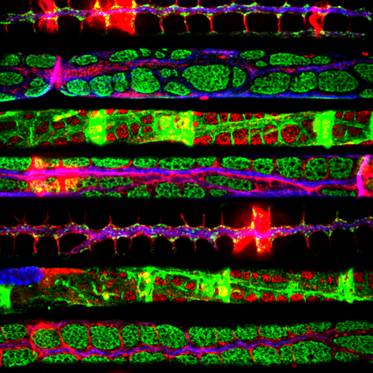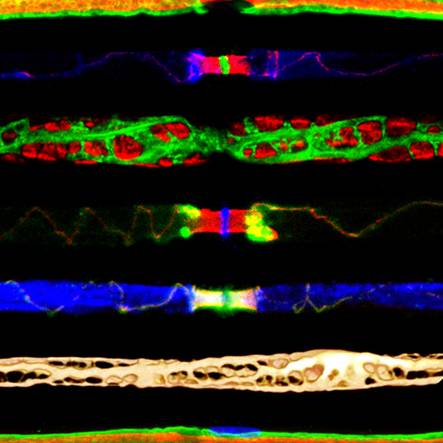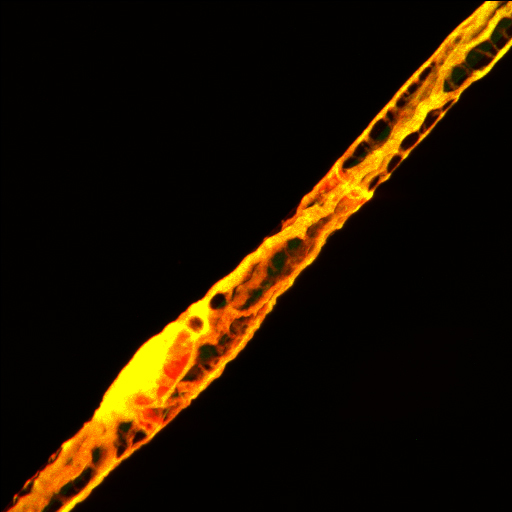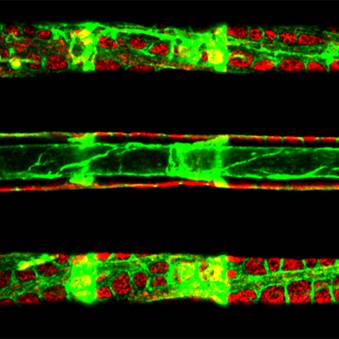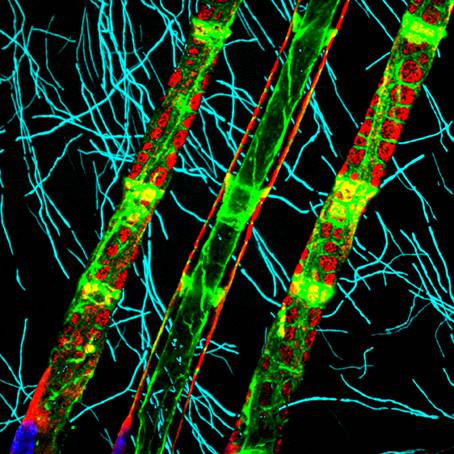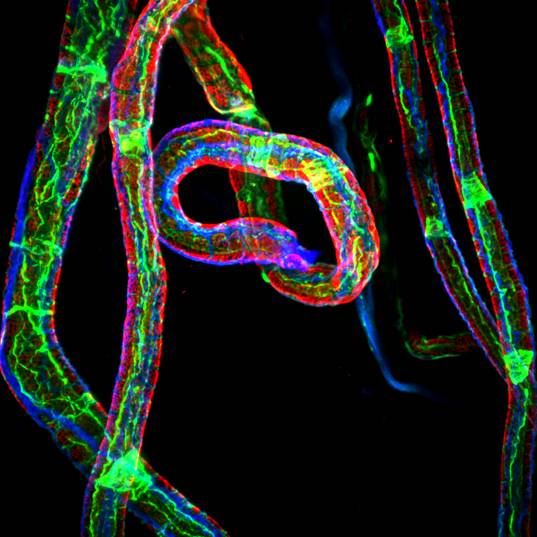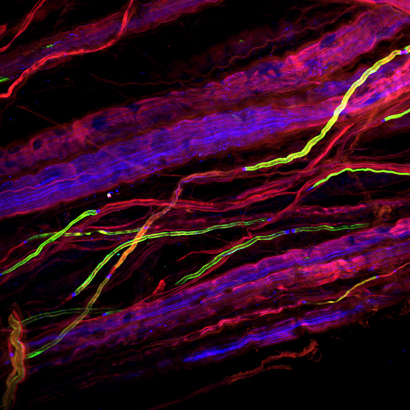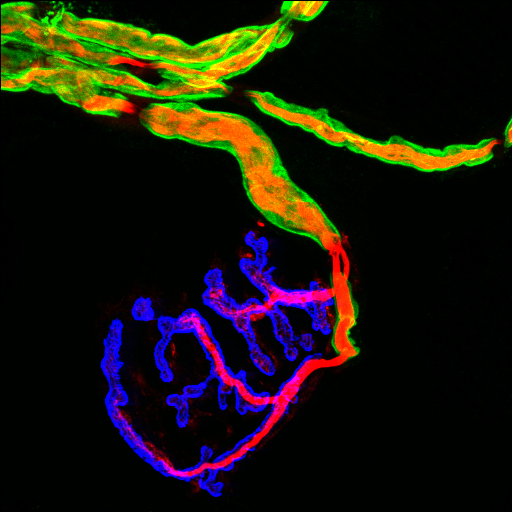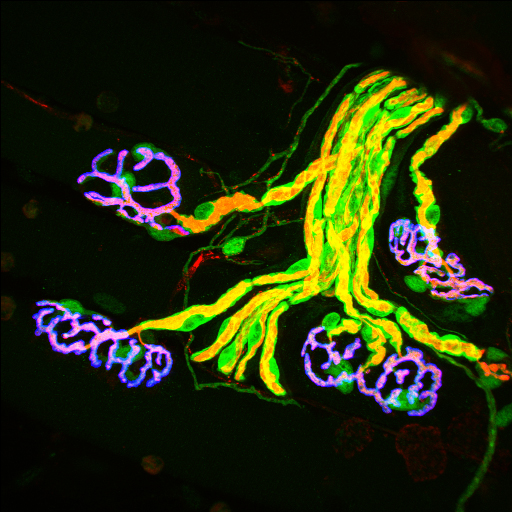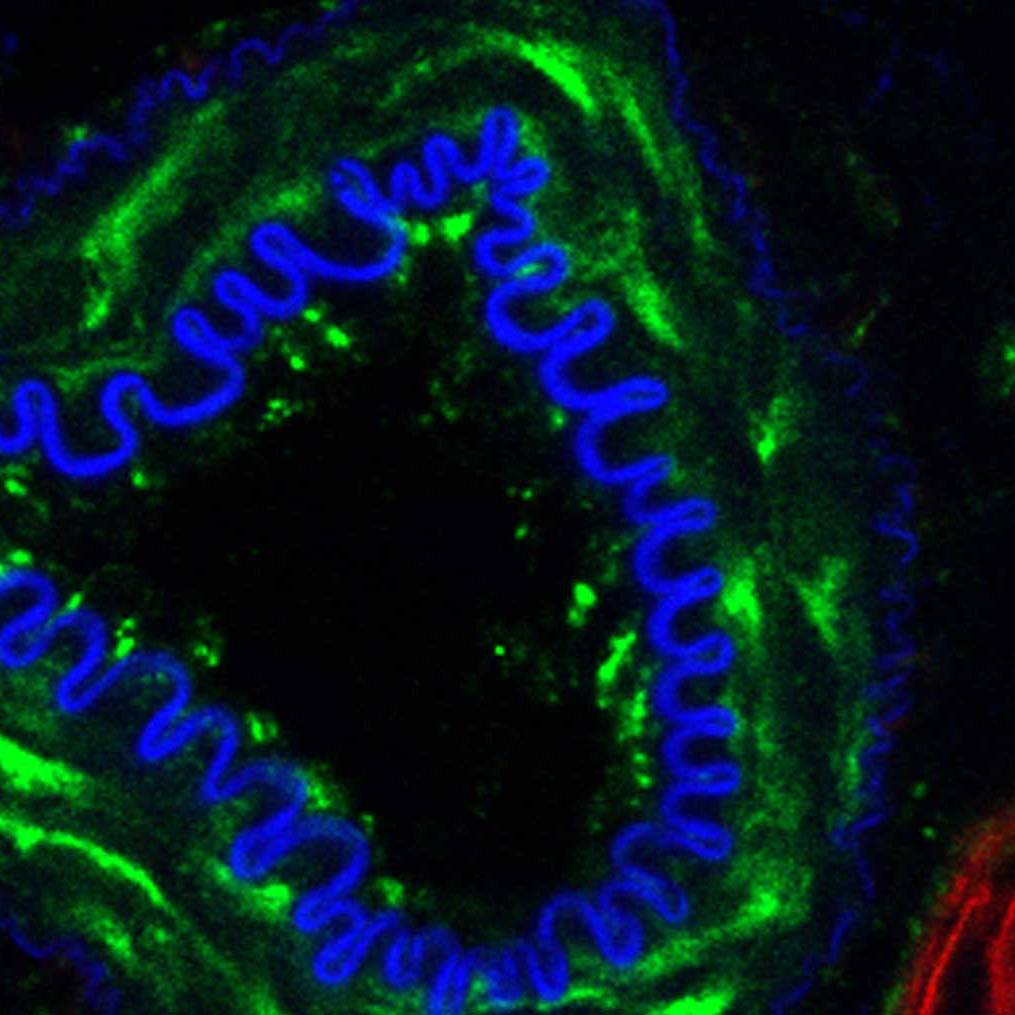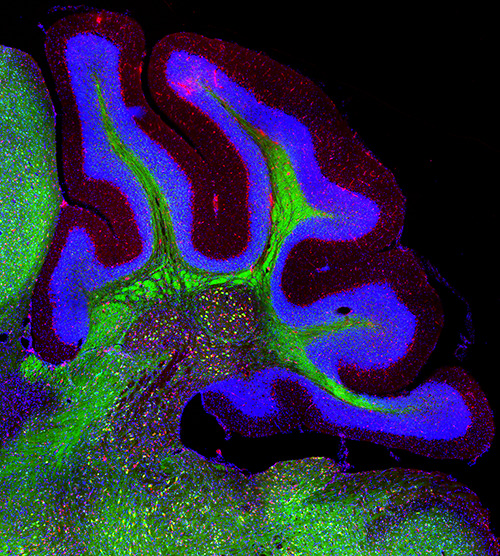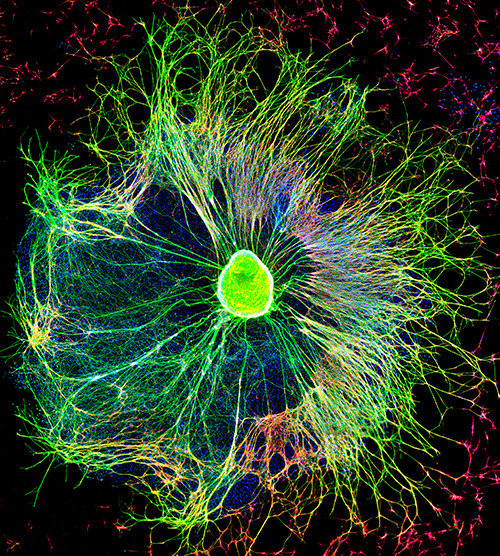Understanding brain aging for neuroprotective strategies
Aging represents the most important risk factor for the development of neurodegenerative diseases. As life expectancy is increasing and birth rate decreasing, the world’s population is getting older at an unprecedented rate. It is estimated that by 2050, approximately 17% of the global population (1.6 billion) will be aged 65 and over. Unfortunately, the fact that people are living longer has translated into an increase in chronic diseases, including neurodegenerative diseases in the population, with enormous social and economic consequences. Most neurodegenerative conditions for which age constitutes the most important risk factor, including Alzheimer’s disease and Parkinson’s disease, have no cure yet and treatments only modestly decrease symptoms, without a significant delay in the progression of neurodegeneration and the associated functional impairment.
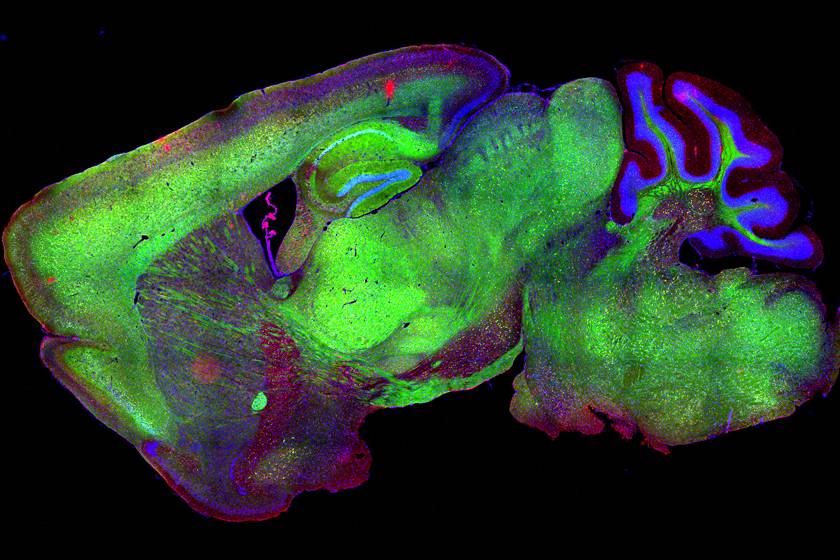
Sagittal section of mouse brain expressing YFP in neurons (green) and stained for a microglial marker in red and cell nuclei in blue.
Searching for novel Geroprotectors
Using in vitro and in vivo models, we study changes in neurons and glial cells along aging. By combining several techniques, including deep proteomic analysis, biomarker detection, microscopy and behavioral analysis, we have discovered the activation of neurodegenerative pathways which can be targeted by genetic and pharmacological approaches. Using biomedical models of brain aging, we have shown that systemic interventions in already aged mice are capable to revert age-associated hippocampal changes, restoring synaptic function, and leading to reversal of learning and memory capacity to youthful levels. In addition to systemic pharmacological interventions, we are also studying the impact of physical activity in brain function, to identify molecular mediators in the muscle-brain axis with neuroprotective effects.
People involved
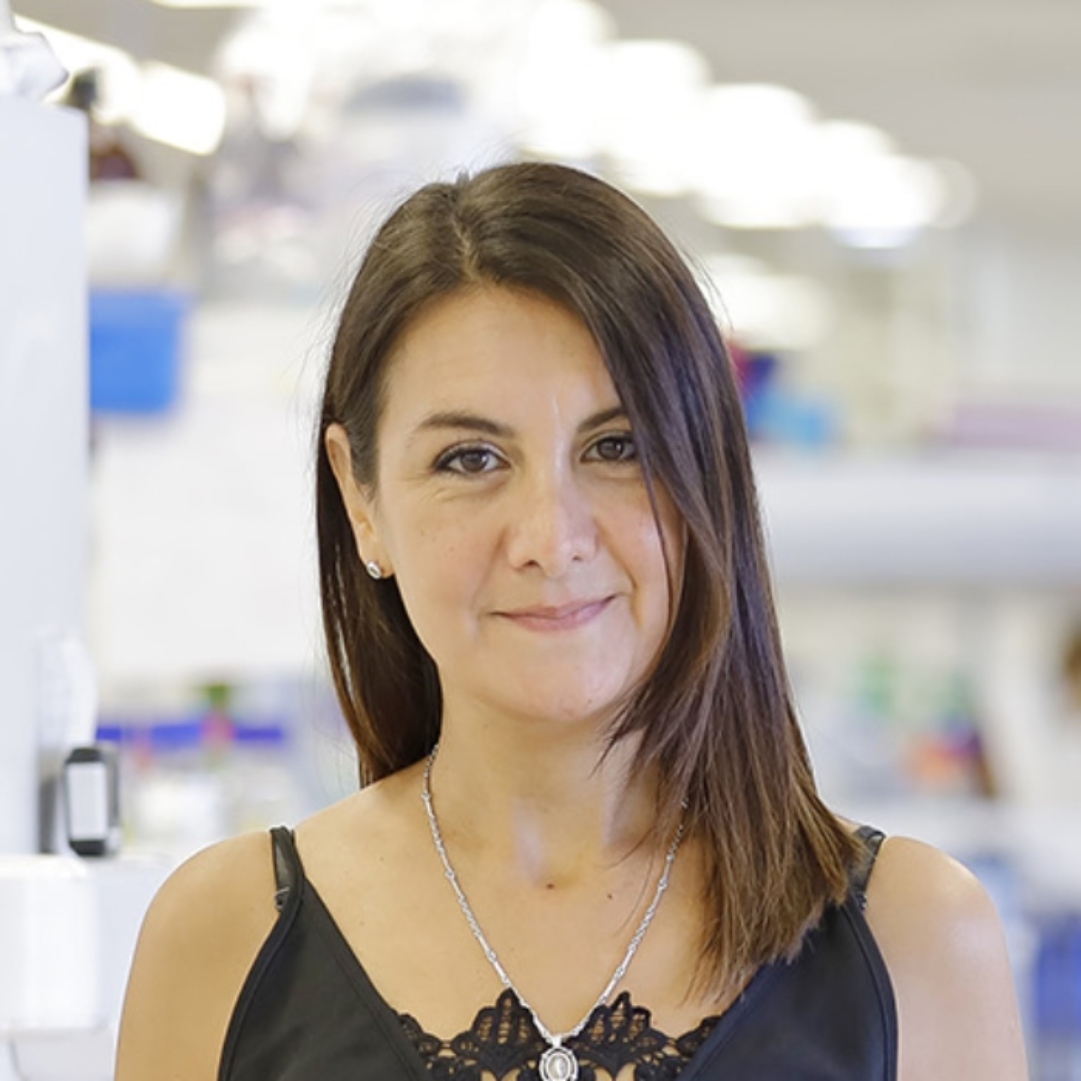
Macarena Arrazola
PI collaborator

PhD in Biological Sciences from the Catholic University of Chile. Studying the contribution of necroptosis in the age-associated axonal degeneration of the hippocampus, and the impact of using pharmacological approaches to revert neuronal dysfunction and cognitive impairment during aging, proposing necroptosis as an attractive target for the future development of geroprotective tools to treat age-related disabilities.

Daniela Rebolledo
Senior Research Assitant

I am a Biochemist from Pontificia Universidad Católica de Chile (PUC) and PhD in Cell and Molecular Biology from the same university. My PhD thesis research was performed at the Physiology and Biophysics department, University of Washington. My research has focused on the physiology of the neuromuscular system and the pathological mechanisms behind neuromuscular disorders of diverse etiology.
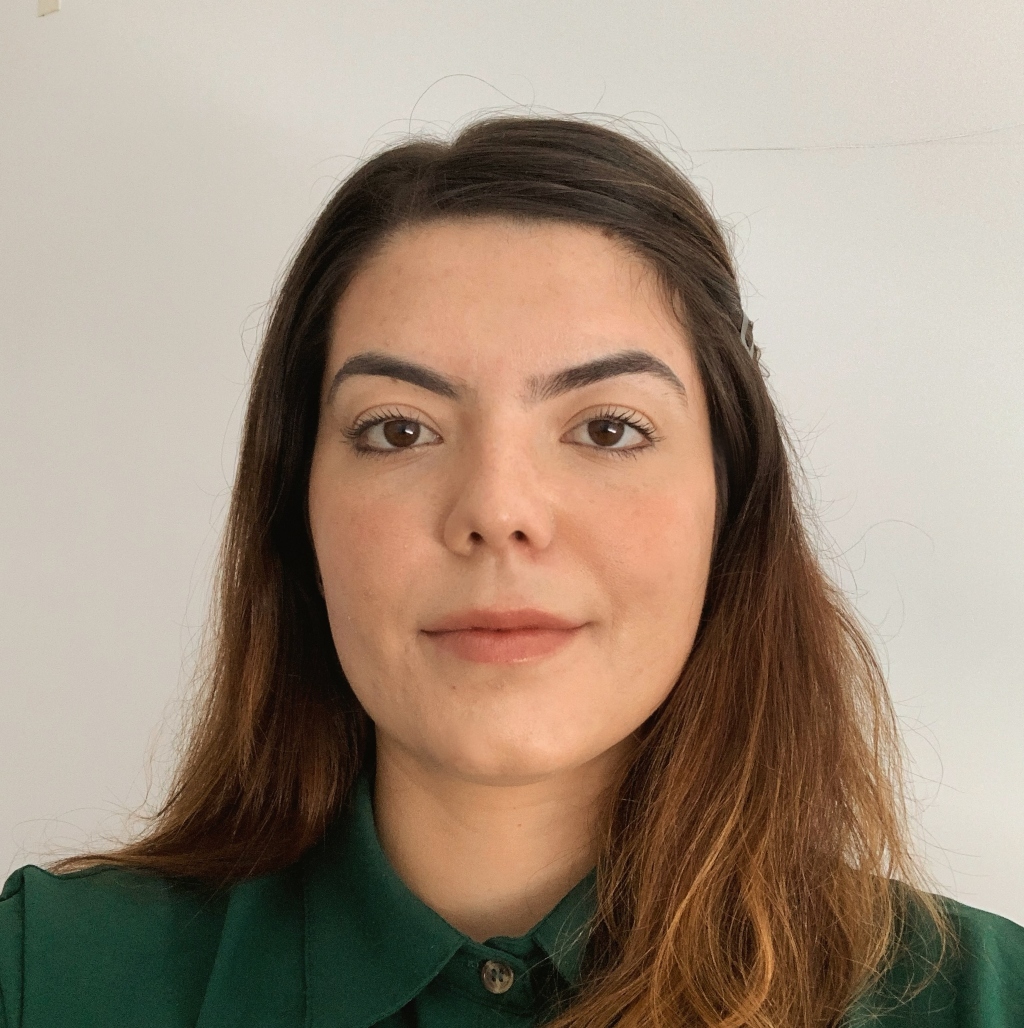
Karina Girardi do Carmo
Postdoctoral fellow

Biologist, Ph.D., and MSc in Cell and Molecular Biology from Oswaldo Cruz Foundation (Fiocruz/RJ). Studying age-dependent decline of regenerative capacity in the peripheral nervous system. Mainly focusing on the contribution of metabolic profile of aging Schwann cells in senescence and particularly exploring the epithelial-mesenchymal transition (EMT) like process.
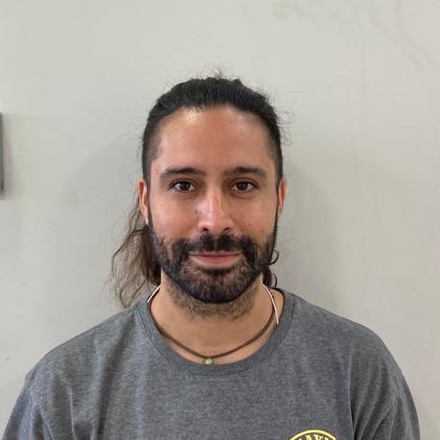
Felipe Véliz Valverde
PhD Student

Msc Neuroscience. Neurobiology PhD student at Universidad Mayor. I´m interested in understand the beneficial effects of exercise on brain function and behavior in aging. Skeletal muscle can crosstalk with other organs by myokines or exerquines. Some of them can cross the blood brain barrier and reach the brain, triggering neuroprotective effects. The aim question of my work is wheater some exerquines have an effect on axonal degeneration.
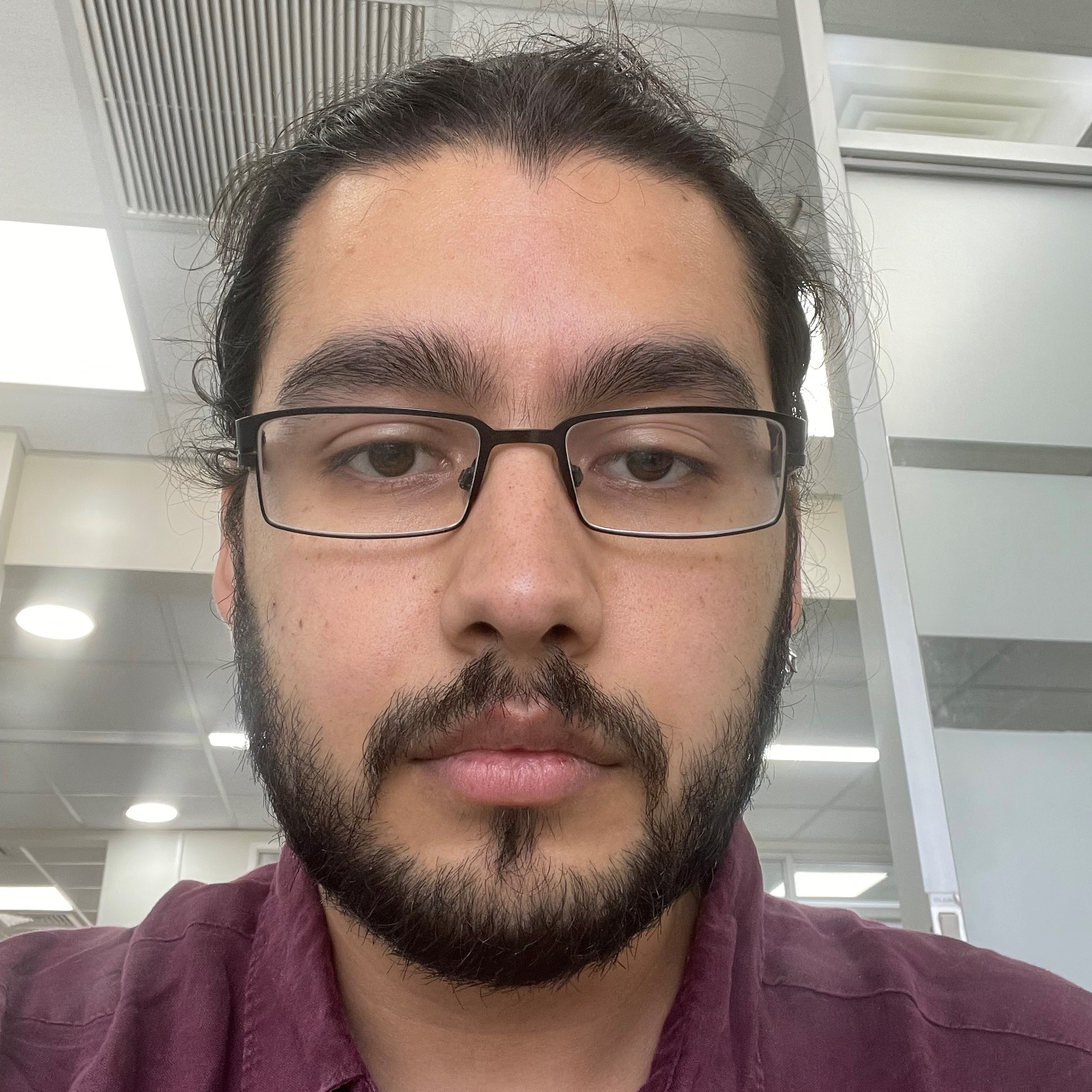
Rodrigo Leiva
Research Assitant

B.Sc(hons) degree in Neuroscience from the University of Glasgow and M.Sc in Integrative Neuroscience from the University of Edinburgh. I’m currently working on the role of axonal necroptosis and inflammation in the dopaminergic neurons of the nigrostriatal pathway in Parkinson’s Disease to assess it as a potential therapeutic target through the inhibition of RIPK3.
Related Publications
septiembre 5, 2023
Carotid Body-Mediated Chemoreflex Function in Aging and the Role of Receptor-Interacting Protein Kinase
Esteban Díaz-Jara, Karla G Schwarz, Angelica Ríos-Gallardo, Camilo Toledo, Julio A Alcayaga, Felipe A Court, Rodrigo Del Rio.
Adv Exp Med Biol. 1427:195-201. doi: 10.1007/978-3-031-32371-3_21.
abril 19, 2023
Necroptosis inhibition counteracts axonal degeneration, cognitive decline and key hallmarks of aging, promoting brain rejuvenation.
Macarena S. Arrázola, Matías Lira, Gabriel Quiroz, Somya Iqbal, Samantha L Eaton, Rachel A Kline, Douglas J Lamont, Hernán Huerta, Gonzalo Ureta, Sebastián Bernales, J César Cárdenas, Waldo Cerpa,Thomas M. Wishart, Felipe A. Court
Aging Cell. Mar 27;e13814. doi: 10.1111/acel.13814. Online ahead of print.
enero 25, 2023
Senescent Schwann cells induced by aging and chronic denervation impair axonal regeneration after peripheral nerve injury
Andrés Fuentes-Flores, Cristian Geronimo-Olvera, David Ñecuñir, Sandip Kumar Patel, Joanna Bons, Megan C Wright, Daniel Geschwind, Ahmet Hoke, Jose A. Gomez-Sanchez, Birgit Schilling, Judith Campisi, Felipe A. Court
agosto 8, 2022
Commentary on «PANoptosis-like cell death in ischemia/reperfusion injury of retinal neurons»
Macarena S. Arrázola, Court FA.
PMID: 35900426
Related News
Expertos analizaron los desafíos del envejecimiento y la gerociencia en Chile y el mundo
enero 22, 2024
Destacados referentes como Brian Kennedy, Felipe Sierra y Cecilia Albala expusieron en el simposio organizado por el Centro de Gerociencia, Salud Mental y Metabolismo GERO, compuesto por académicos…
Destacados expertos abordarán los avances más recientes en el campo de la gerociencia y el envejecimiento
enero 16, 2024
Organizado por el Centro de Gerociencia, Salud Mental y Metabolismo, GERO, este miércoles 17 de enero se realizará un simposio que reunirá a líderes en estas áreas, como Felipe Sierra, Cecilia…
